
Serene Shores of Lake Kivu: A Tranquil Escape in Rwanda
Nestled between the lush hills of Rwanda and the Democratic Republic of the Congo, Lake Kivu is a hidden gem waiting to be explored. This expansive freshwater lake, one of Africa's Great Lakes, offers a serene retreat away from the hustle and bustle of city life. The calm waters of Lake Kivu provide a perfect backdrop for relaxation and adventure alike. Visitors to Lake Kivu can enjoy a variety of activities such as kayaking, fishing, and boat tours that reveal the lake's stunning beauty and diverse wildlife. The lake is dotted with picturesque islands, each offering unique experiences and breathtaking views. The shores are lined with charming towns and villages like Gisenyi, Kibuye, and Cyangugu, where you can enjoy local Rwandan hospitality and culture. Moreover, the region around Lake Kivu is rich in history and natural beauty. From the terraced hillsides that produce some of the world's finest coffee to the nearby Nyungwe National Park, home to a myriad of primates and lush rainforests, there is no shortage of sights to see and adventures to embark on. Whether you're looking to relax on the shore, explore the water, or venture into the surrounding landscapes, Lake Kivu offers an unforgettable experience for every traveler.
Local tips in Lake Kivu
- Visit during the dry season (June to September) for the best weather and clearer skies.
- Don't miss a boat tour to the islands for unique views and local experiences.
- Pack insect repellent to protect against mosquitoes, especially in the evening.
- Try the local coffee, produced in the terraced hills around the lake.
- Consider a guided tour of Nyungwe National Park to see primates and lush rainforests.
Serene Shores of Lake Kivu: A Tranquil Escape in Rwanda
Nestled between the lush hills of Rwanda and the Democratic Republic of the Congo, Lake Kivu is a hidden gem waiting to be explored. This expansive freshwater lake, one of Africa's Great Lakes, offers a serene retreat away from the hustle and bustle of city life. The calm waters of Lake Kivu provide a perfect backdrop for relaxation and adventure alike. Visitors to Lake Kivu can enjoy a variety of activities such as kayaking, fishing, and boat tours that reveal the lake's stunning beauty and diverse wildlife. The lake is dotted with picturesque islands, each offering unique experiences and breathtaking views. The shores are lined with charming towns and villages like Gisenyi, Kibuye, and Cyangugu, where you can enjoy local Rwandan hospitality and culture. Moreover, the region around Lake Kivu is rich in history and natural beauty. From the terraced hillsides that produce some of the world's finest coffee to the nearby Nyungwe National Park, home to a myriad of primates and lush rainforests, there is no shortage of sights to see and adventures to embark on. Whether you're looking to relax on the shore, explore the water, or venture into the surrounding landscapes, Lake Kivu offers an unforgettable experience for every traveler.
When is the best time to go to Lake Kivu?
Iconic landmarks you can’t miss
Kigali Genocide Memorial
Explore the Kigali Genocide Memorial, a profound site of remembrance and education on Rwanda's history and resilience post-genocide.
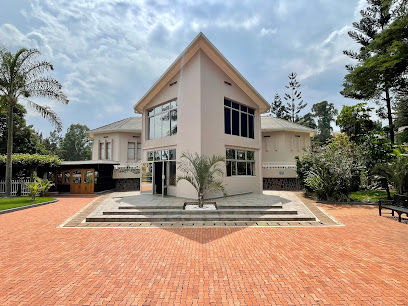
Lake Kivu Serena Hotel/Gisenyi
Discover the beauty of Lake Kivu and indulge in luxury at Lake Kivu Serena Hotel, your gateway to adventure and relaxation in Gisenyi.
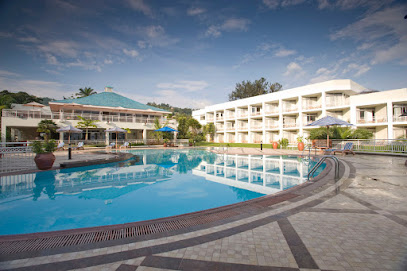
Nyungwe Forest National Park
Explore the lush biodiversity and stunning landscapes of Nyungwe Forest National Park, a gem in Rwanda's natural heritage.
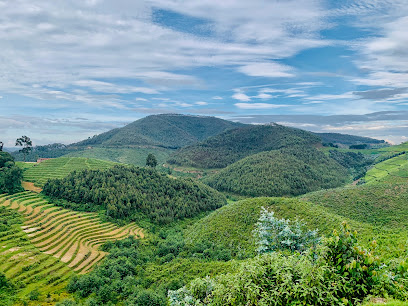
Gorillas Lake Kivu Hotel
Discover tranquility and breathtaking views at Gorillas Lake Kivu Hotel, your perfect retreat on the shores of Lake Kivu.

Blue Monkey Tours Rwanda, Boat tour agency, tour operator ,lake kivu boat, wildlife safari,gorilla trekking ,congo nile trail
Discover the beauty of Lake Kivu with Blue Monkey Tours, offering unforgettable boat tours and wildlife safaris in Rwanda's stunning landscapes.
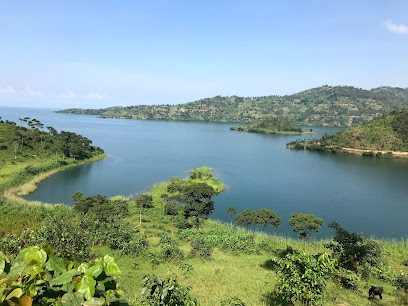
Imbuga City Walk
Explore Imbuga City Walk: A vibrant urban promenade in Kigali offering shopping, dining, and a taste of Rwandan culture.
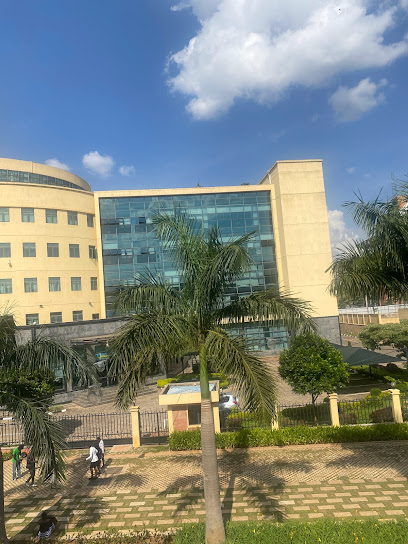
Kivu Belt Destination
Discover the Kivu Belt Destination in Gisenyi, a tourist information center that unlocks the beauty of Lake Kivu and its vibrant local culture.
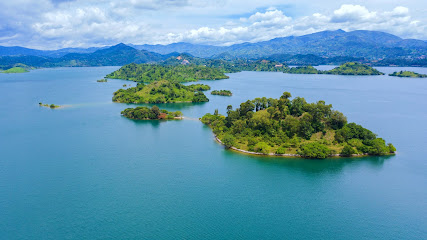
Karongi lake kivu
Experience the breathtaking beauty and cultural richness of Karongi Lake Kivu, a serene destination in Rwanda perfect for relaxation and adventure.
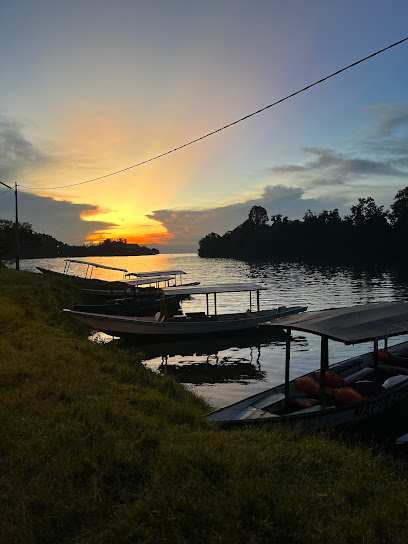
Unmissable attractions to see
Nyungwe Forest National Park
Explore Nyungwe Forest National Park, Rwanda's lush national park packed with diverse wildlife, scenic trails, and breathtaking natural beauty for an unforgettable adventure.
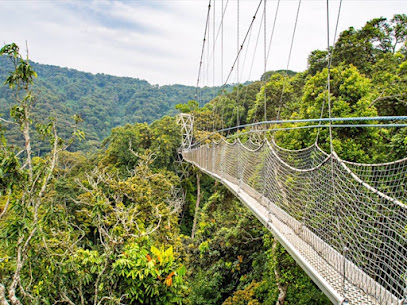
Bisesero Genocide Memorial
Explore the Bisesero Genocide Memorial in Gishyita, a poignant tribute to resilience and remembrance amidst Rwanda's breathtaking landscapes.
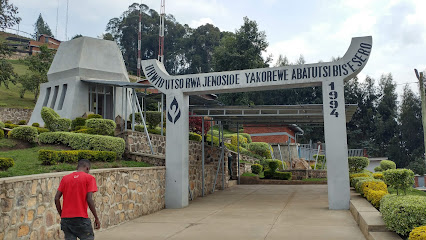
Nyamagana Lake(Icyuzi cya Nyamagana)
Experience the serene beauty of Nyamagana Lake in Nyanza, Rwanda, a perfect blend of nature and tranquility for every traveler.
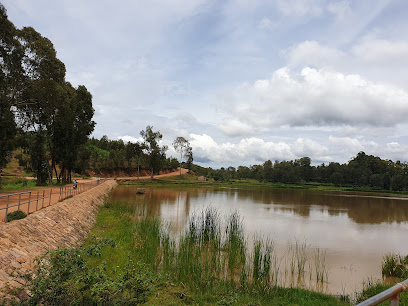
Kamiranzovu Swamp
Explore the lush landscapes and rich biodiversity of Kamiranzovu Swamp, a serene natural attraction in Colline Ibanda, Rwanda.
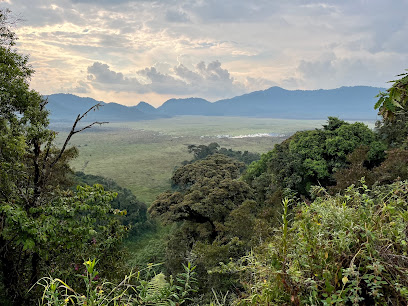
Imbabazi
Explore Imbabazi, a heartwarming orphanage in Rwanda, where cultural exchange and community support create unforgettable travel experiences.
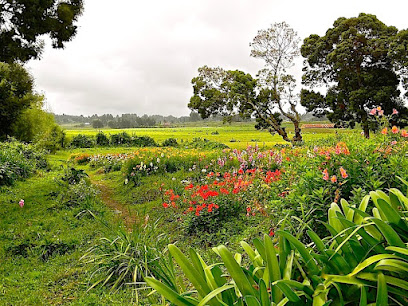
Napoléon Island
Explore Napoléon Island, a natural paradise in Kibuye, Rwanda, offering stunning hiking trails and breathtaking views of Lake Kivu.
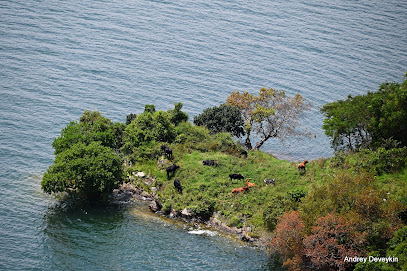
Bigugu Hiking Trail
Discover the stunning beauty of Rwanda at Bigugu Hiking Trail, a serene hiking spot perfect for nature lovers and adventure seekers.
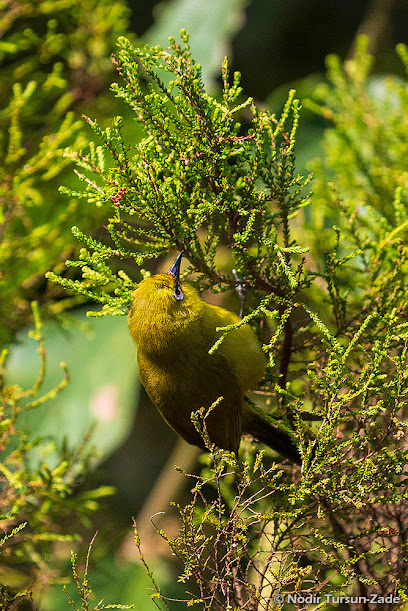
Hill of Remera
Discover the tranquil beauty and rich cultural heritage of the Hill of Remera, a scenic escape in Nyanza offering breathtaking views.
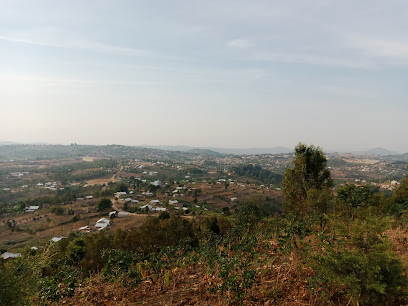
Deyelens Rwanda
Explore Deyelens Rwanda, a stunning tourist attraction along RN7 that showcases the beauty and culture of this incredible African nation.
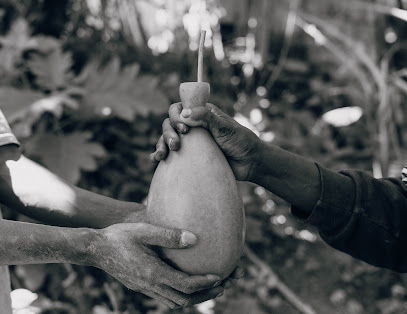
Kabindi
Explore the serene landscapes and vibrant culture of Kabindi in Colline Ibanda, a captivating tourist attraction in Rwanda.

Dawe uri mwijuru
Discover the serene beauty of Dawe uri mwijuru, a hidden hiking paradise in Gishyita, perfect for nature lovers and adventure seekers.
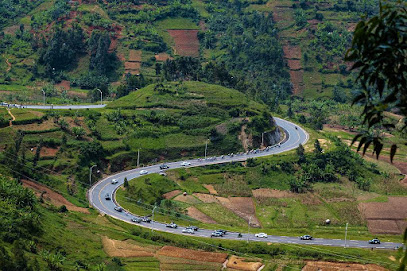
Gisiza recreation area
Experience the tranquility and natural beauty of Gisiza Recreation Area, a hidden gem in Colline Rugoti, Rwanda's lush landscape.
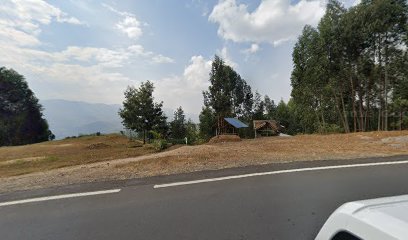
Gasharu Coffee Nursery
Explore the enchanting Gasharu Coffee Nursery in Gatare, Rwanda, where coffee culture thrives amidst stunning landscapes and rich heritage.

Kopakama coffee washing station
Explore Rwanda's rich coffee culture at Kopakama Coffee Washing Station, where you can experience coffee production and breathtaking views.
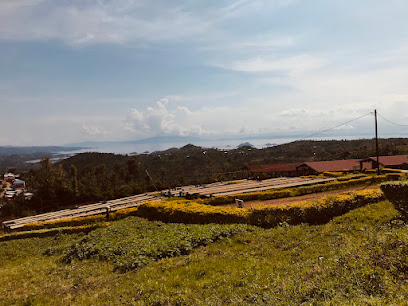
KOPAKAMA CWS NYAGATARE
Discover the rich flavors and sustainable practices of Rwandan coffee culture at Kopakama Coffee in Rutsiro, a must-visit for every traveler.

Essential places to dine
Heaven Restaurant & Boutique Hotel
Discover a culinary gem in Kigali where local flavors meet international cuisine at Heaven Restaurant & Boutique Hotel.
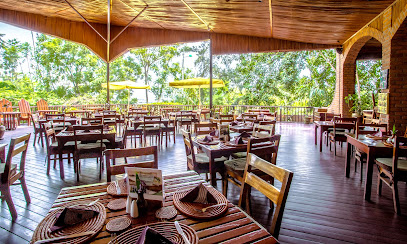
Cormoran Lodge
Discover tranquility at Cormoran Lodge with stunning views of Lake Kivu - your perfect getaway in Rwanda.

Lakeside Bar Beach & Restaurant
Experience delightful dining at Lakeside Bar Beach & Restaurant with stunning views over Lake Kivu – perfect for relaxing meals amidst nature's beauty.
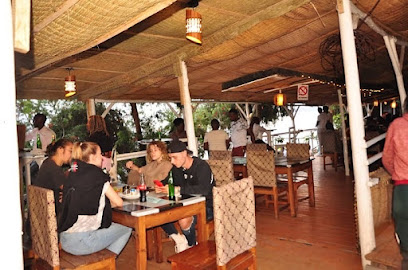
Saba Lounge & Restaurant
Discover the vibrant flavors of Rwanda at Saba Lounge & Restaurant - where culinary tradition meets modern dining.
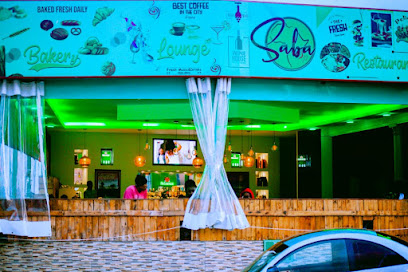
Cool Garden Restaurant
Discover the serene ambiance and delectable dishes at Cool Garden Restaurant in Kigali - your culinary oasis in Rwanda.
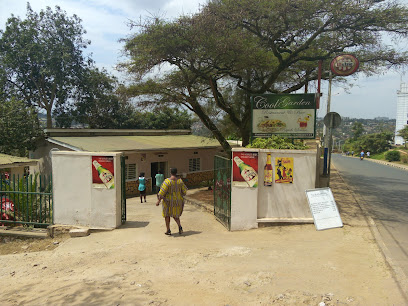
Oroha Sunset Beach
Discover serenity at Oroha Sunset Beach on Lake Kivu - where breathtaking sunsets meet tranquil waters.
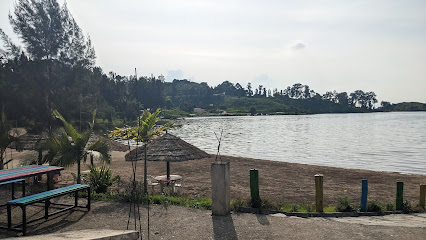
CAFE KERALA RWANDA
Savor authentic Indian cuisine at Cafe Kerala Rwanda – where every dish tells a story of flavor and tradition.
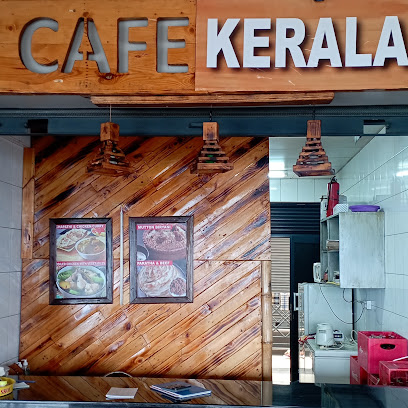
New Bistro Wine Garage
Experience delightful dining at New Bistro Wine Garage in Gisenyi – where local flavors meet scenic views.
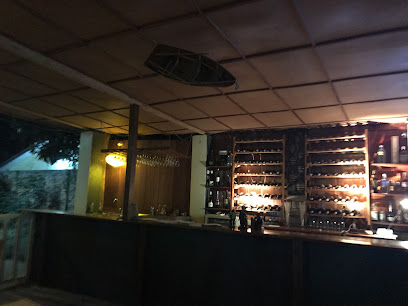
Lakeside View Lounge & Restaurant Gisenyi
Experience exquisite dining at Lakeside View Lounge & Restaurant with stunning lake vistas and delightful local flavors in Gisenyi.
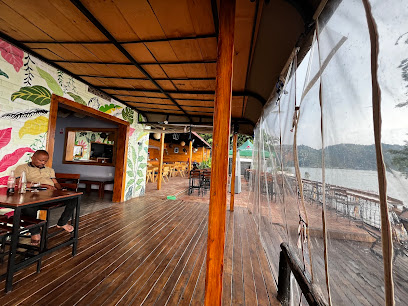
Portico Bar Resto Gisenyi
Experience the vibrant flavors of Rwanda at Portico Bar Resto Gisenyi - where every meal is paired with stunning lake views.
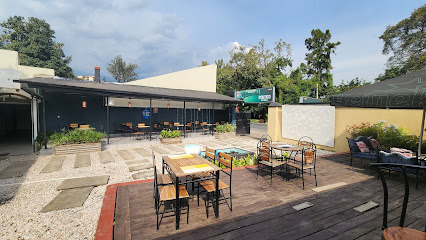
Pizza Inn
Discover the delightful taste of authentic pizzas at Pizza Inn in Kigali, where fresh ingredients meet local charm for an unforgettable dining experience.

Wifi Beach Restaurant - Gisenyi, Rubavu - Rwanda
Experience delightful local cuisine with stunning views at Wifi Beach Restaurant on Lake Kivu in Gisenyi, Rwanda.
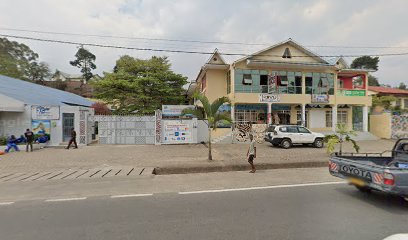
IRC Kitchen Area
Discover the rich flavors of Rwandan cuisine at IRC Kitchen Area - a culinary gem blending local traditions with modern dining experiences.
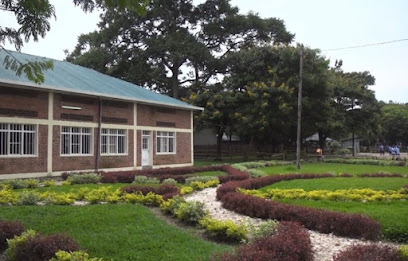
Delight Restaurant
Experience authentic Rwandan cuisine at Delight Restaurant in Kigali's vibrant Nyabugogo area - a must-visit for culinary enthusiasts.
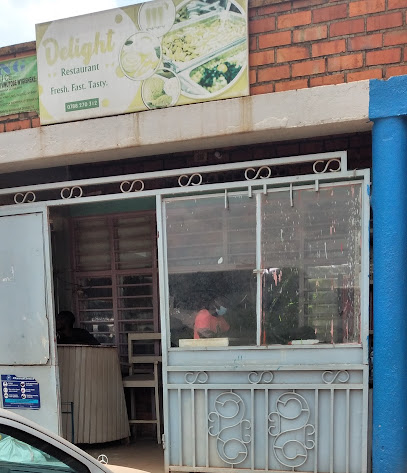
ELFER FAST FOOD
Experience local flavors and international favorites at Elfer Fast Food, your go-to stop for quick bites in Kigali's bustling Nyabigogo area.
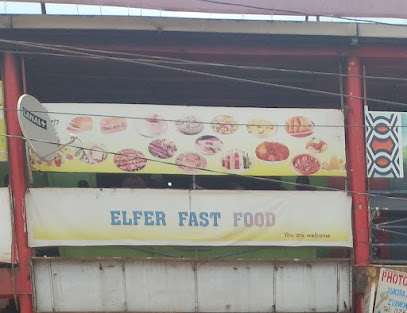
Markets, malls and hidden boutiques
Gorillas Lake Kivu Hotel
Experience the tranquility of Lake Kivu at Gorillas Lake Kivu Hotel, where comfort meets natural beauty in Gisenyi, Rwanda.

INZU Lodge
Discover the beauty of Rwanda at INZU Lodge, a serene retreat offering nature, comfort, and adventure by Lake Kivu.

Roots Rwanda Online Shopping
Explore the best of Rwandan e-commerce with Roots Rwanda - your destination for electronics, local goods, and unique souvenirs.
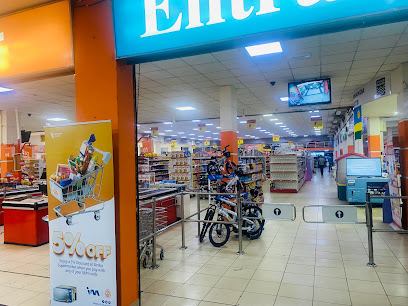
Abraham Konga Collections
Explore Abraham Konga Collections, Kigali's premier destination for unique African treasures and handicrafts that celebrate Rwandan culture.
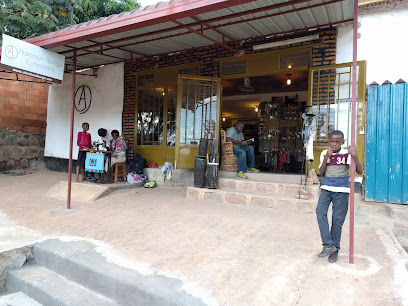
Made in Rwanda Shop
Discover the essence of Rwandan culture at Made in Rwanda Shop, where local artisans showcase their unique craftsmanship and heritage.

Basket Store
Explore the Basket Store in Kigali for unique handcrafted Rwandan baskets and souvenirs that celebrate local culture and craftsmanship.
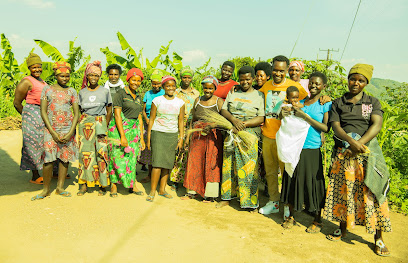
Gift & Stuff Rwanda
Discover unique Rwandan souvenirs and gifts at Gift & Stuff Rwanda, a treasure trove of local crafts in Kigali.
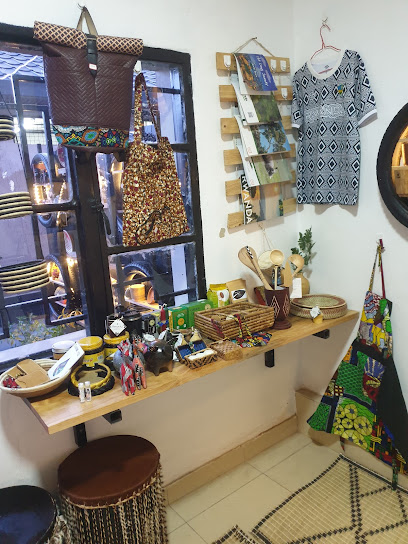
Gacurabwenge
Explore Gacurabwenge in Taba for authentic Rwandan crafts and souvenirs that reflect the rich cultural heritage of the region.
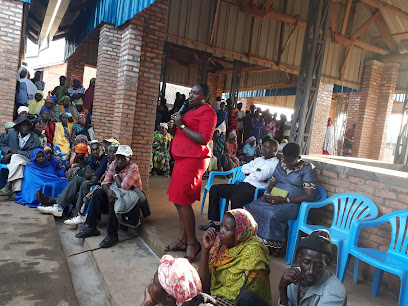
Kivu Belt Destination
Discover the Kivu Belt Destination, your ultimate tourist information center in Gisenyi, unlocking the beauty and adventures of Lake Kivu with expert guidance.
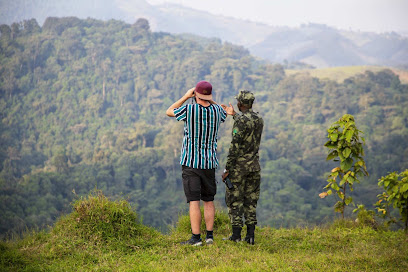
Aiemstore
Discover unique Rwandan crafts and souvenirs at Aiemstore, the perfect gift shop for capturing the spirit of Rwanda.
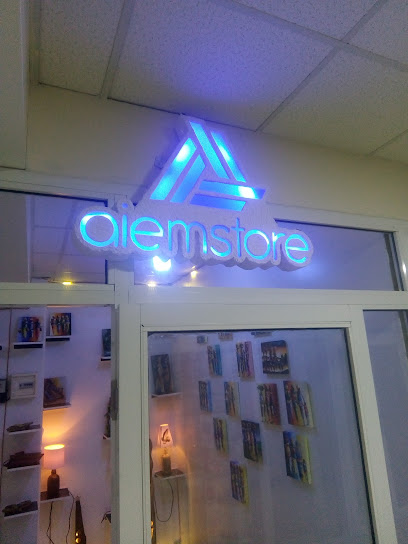
ECLAIR Boutique
Discover ECLAIR Boutique in Kigali for unique gifts that capture the essence of Rwandan culture and artistry.
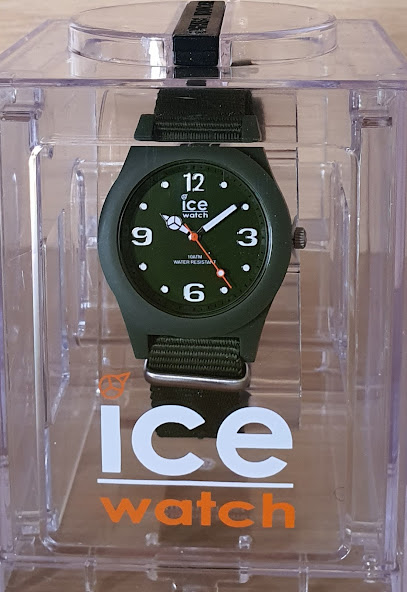
Love To Help Rwanda
Explore the heart of Rwandan culture through unique handcrafted gifts at Love To Help Rwanda, a must-visit shop in Kigali.

Kivu Rwanda Cultural Belt Boutique ( KRCB) Ltd
Explore the vibrant culture of Rwanda at Kivu Rwanda Cultural Belt Boutique, where local artisans showcase unique, handcrafted treasures.

KU GASANTRE
Experience shopping like never before at KU GASANTRE, a vibrant mall in Rutobwe offering diverse stores, dining, and entertainment for all visitors.

nbkkopo
Explore exquisite formal wear in 00gikonkwa, showcasing local craftsmanship and style for every special occasion.

Essential bars & hidden hideouts
Lakeside Bar Beach & Restaurant
Experience the perfect blend of relaxation and culinary delight at Lakeside Bar Beach & Restaurant by Lake Kivu in Gisenyi.
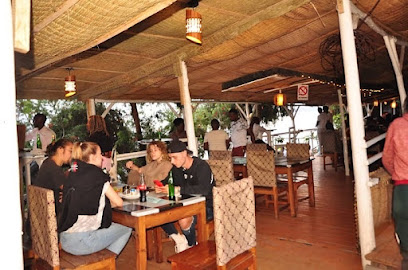
Peace Corner
Discover the essence of Rwandan cuisine at Peace Corner in Gisenyi, where grilled flavors meet warm hospitality.
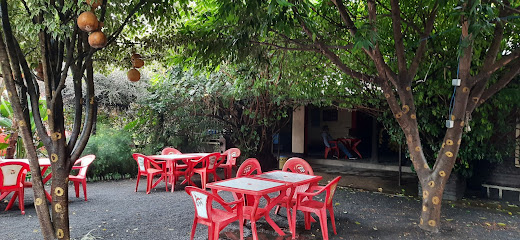
Roxy Bar and Restaurant (anciennement White Rock)
Experience the flavors of Rwanda at Roxy Bar and Restaurant, a culinary haven in Gisenyi with stunning views of Lake Kivu.
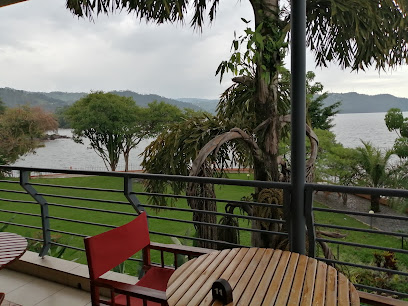
Saba Lounge & Restaurant
Saba Lounge & Restaurant in Gisenyi: A perfect blend of local flavors and cozy ambiance awaits you in Rwanda's picturesque lakeside town.
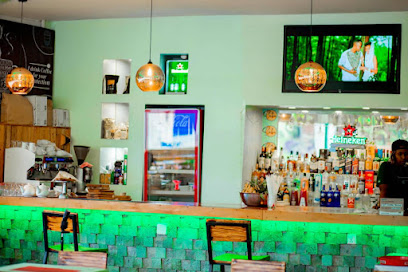
New Bistro Wine Garage
Discover delightful dining at New Bistro Wine Garage in Gisenyi, where local flavors meet international cuisine in a cozy atmosphere.
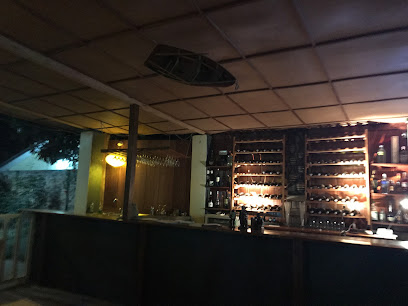
Lakeside View Lounge & Restaurant Gisenyi
Experience exquisite dining with breathtaking views at the Lakeside View Lounge & Restaurant in Gisenyi, Rwanda.
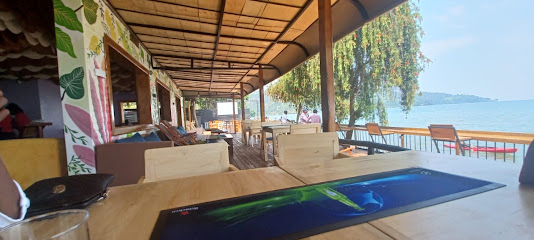
KIVU Rock
Enjoy vibrant nightlife at KIVU Rock, a premier bar in Rubavu with stunning views of Lake Kivu and an extensive drink menu.
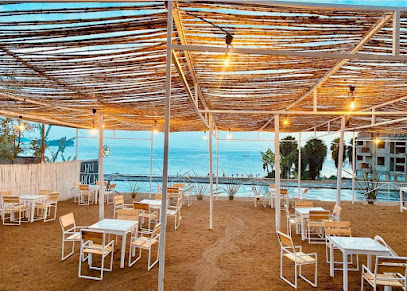
Portico Bar Resto Gisenyi
Experience the best of Rwandan and international cuisine at Portico Bar Resto Gisenyi, overlooking beautiful Lake Kivu.
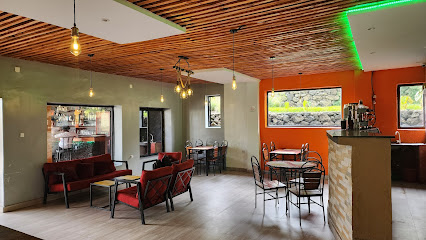
One Love Bar (Chute Bar & Lodge)
Discover the vibrant atmosphere and local flavors at One Love Bar in Mabanza, a perfect retreat for tourists seeking relaxation and culture.

JIDOS PLAZA
Discover the flavors of Rwanda at JIDOS PLAZA, Kibuye's premier grill restaurant, serving delicious dishes in a vibrant and welcoming atmosphere.
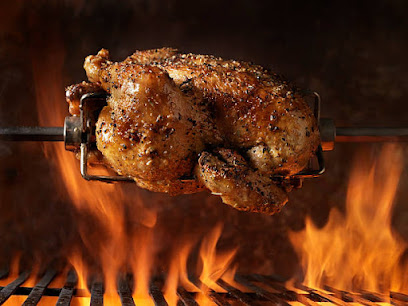
GISENYI GISIMENTI BAR & RESTAURANT
Experience the flavors of Rwanda at Gisenyi Gisementi Bar & Restaurant, where local cuisine meets stunning views of Lake Kivu.
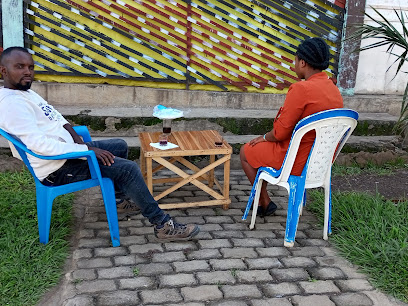
Golf Lake Beach
Experience relaxation and adventure at Golf Lake Beach, the perfect bar on the shores of Lake Kivu, Kibuye.
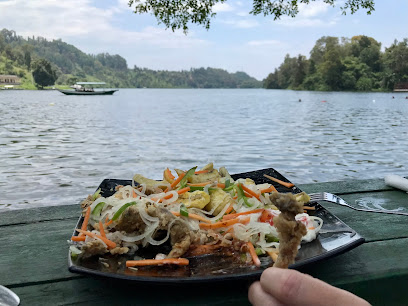
Wifi Beach Restaurant - Gisenyi, Rubavu - Rwanda
Experience exquisite dining with stunning lake views at Wifi Beach Restaurant in Gisenyi, Rwanda, where every meal is a delightful retreat.
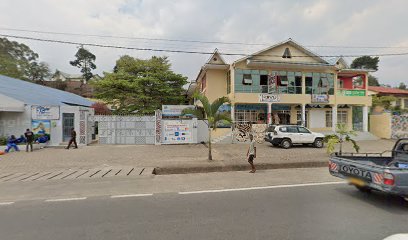
Kimwe pub
Experience the authentic vibe of Gitesi at Kimwe Pub, where friendly faces and delightful drinks await you in a lively atmosphere.
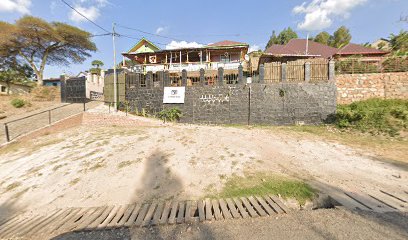
Local Phrases about Lake Kivu
-
- HelloMuraho
[moo-rah-ho] - GoodbyeMurabeho
[moo-rah-bay-ho] - YesYego
[yeah-go] - NoOya
[oh-yah] - Please/You're welcomeNagukumbuye
[nah-goo-koom-boo-yay] - Thank youMurakoze
[moo-rah-koh-zay] - Excuse me/SorryNshuti
[n-shoo-tee] - How are you?Amakuru?
[ah-mah-koo-roo] - Fine. And you?Ni meza. Na wewe?
[nee may-zah. nah way-way] - Do you speak English?Muraba kuvuga icyongereza?
[moo-rah-bah koo-voo-gah ee-chon-gair-ay-zah] - I don't understandNtugirishije
[n-too-gee-ree-shee-jay]
- HelloMuraho
-
- I'd like to see the menu, pleaseNifashishije komeza, cyane
[nee-fah-shee-shee-jay koh-may-zah, ch-yah-nay] - I don't eat meatSi kunywa imyenda
[see koo-nyoo-wah ee-m-yen-dah] - Cheers!Amahoro!
[ah-mah-ho-ro] - I would like to pay, pleaseNifashishije gukodesha, cyane
[nee-fah-shee-shee-jay goo-koh-day-shah, ch-yah-nay]
- I'd like to see the menu, pleaseNifashishije komeza, cyane
-
- Help!Ubufasha!
[oo-boo-fah-shah] - Go away!Jya kure!
[j-ya koo-ray] - Call the Police!Sibyuma ibikorwa bya polisi!
[see-byoo-mah ee-bee-kor-wah bya poh-lee-see] - Call a doctor!Sibyuma umuganga!
[see-byoo-mah oo-moo-gahn-gah] - I'm lostNdi ntandukanye
[n-dee n-tan-doo-kahn-yay] - I'm illNdi mubimenyere
[n-dee moo-bee-men-yay-ray]
- Help!Ubufasha!
-
- I'd like to buy...Nifashishije gukina...
[nee-fah-shee-shee-jay goo-kee-nah] - I'm just lookingNkora ibyo nshaka
[n-koh-rah ee-byo n-shah-kah] - How much is it?Ni iyihe?
[nee ee-yee-hay] - That's too expensiveIbi birakwiye gusa
[ee-bee bee-rah-kwee-yay goo-sah] - Can you lower the price?Mwemere kuba dayi?
[m-way-may-ray koo-bah dah-yee]
- I'd like to buy...Nifashishije gukina...
-
- What time is it?Saa ngapi?
[sah nah-gah-pee] - It's one o'clockNi saa rimwe
[nee sah reem-way] - Half past (10)Kuri kwezi kumwe
[koo-ree kway-zee koo-m-way] - MorningImana
[ee-mah-nah] - AfternoonMugitondo
[moo-gee-ton-doh] - EveningUmugoroba
[oo-moo-go-ro-bah] - YesterdayEjo
[ay-joh] - TodayEjo
[ay-joh] - TomorrowEjo
[ay-joh] - 1Rimwe
[reem-way] - 2Kabiri
[kah-bee-ree] - 3Gatatu
[gah-tah-too] - 4Kane
[kah-nay] - 5Gatanu
[gah-tah-noo] - 6Gatandatu
[gah-tahn-dah-too] - 7Kumwe
[koo-m-way] - 8Ruhoko
[roo-ho-koh] - 9Icyenda
[ee-ch-yen-dah] - 10Mwanya
[m-wan-yah]
- What time is it?Saa ngapi?
-
- Where's a/the...?Ehehe?
[ay-hay-hay] - What's the address?Aho ni ayahe?
[ah-ho nee ah-yah-hay] - Can you show me (on the map)?Mwemere kundika (ku mapi)?
[m-way-may-ray koon-dee-kah (koo mah-pee)] - When's the next (bus)?Iki ni iki?
[ee-kee nee ee-kee] - A ticket (to ....)Igishanga (kuri ....)
[ee-gee-shan-gah (koo-ree)]
- Where's a/the...?Ehehe?
History of Lake Kivu
-
Lake Kivu is one of the African Great Lakes located on the border between Rwanda and the Democratic Republic of Congo. Formed millions of years ago due to volcanic activity, the lake is part of the Albertine Rift, a western branch of the East African Rift. With an area of about 2,700 square kilometers, Lake Kivu is unique for its high levels of dissolved gases, particularly methane and carbon dioxide, making it a subject of scientific interest and concern.
-
Archaeological evidence suggests that the Lake Kivu region has been inhabited for thousands of years. The earliest known settlers were the Twa, a Pygmy people who were hunter-gatherers. Later, Hutu agriculturalists and Tutsi pastoralists migrated to the area, shaping the region’s socio-cultural landscape. These communities established intricate systems of governance and social structures long before European colonization.
-
Lake Kivu became a focal point during the colonial era when Rwanda was under German and later Belgian control. The Europeans were drawn to the lake’s strategic location and natural beauty. They introduced coffee and tea plantations around the lake, altering the local economy and lifestyle. Colonial powers also initiated the first geological surveys of Lake Kivu, intrigued by its unique properties.
-
Following Rwanda’s independence from Belgium in 1962, Lake Kivu witnessed significant political and social changes. The lake played a crucial role during the Rwandan Civil War and the 1994 Genocide against the Tutsi, serving both as a refuge and a perilous crossing for those fleeing violence. Post-genocide, the region around Lake Kivu has seen reconstruction efforts and a focus on unity and development.
-
Today, Lake Kivu is not only a natural wonder but also an economic asset for Rwanda. The lake's methane gas reserves are being harnessed for electricity production, providing a sustainable energy source for the region. Additionally, the surrounding area has become a hub for tourism, with activities like boating, fishing, and hiking attracting visitors from around the world. Local communities benefit from tourism through job creation and cultural exchanges.
-
The communities around Lake Kivu are rich in cultural traditions. The Banyarwanda people, comprising mainly of Hutu, Tutsi, and Twa, celebrate various festivals and ceremonies that reflect their heritage. Traditional music, dance, and crafts are integral to daily life. The lake is also a source of inspiration for local folklore and legends, adding to its mystical allure.
-
Lake Kivu faces several environmental challenges, including the potential risk of limnic eruptions due to its high methane and carbon dioxide content. Efforts are underway to monitor and manage these risks. Additionally, conservation initiatives aim to protect the lake’s biodiversity and ensure sustainable use of its resources. These efforts are crucial for maintaining the ecological balance and supporting the livelihoods of local communities.
Lake Kivu Essentials
-
Lake Kivu is located in the western part of Rwanda, bordering the Democratic Republic of Congo. The nearest international airport is Kigali International Airport, which is approximately 150 kilometers away from Lake Kivu. From Kigali, you can take a bus, hire a taxi, or rent a car to reach the lakeside towns of Gisenyi, Kibuye, or Cyangugu. The journey by road typically takes around 3 to 4 hours, depending on your destination around the lake.
-
Transportation options around Lake Kivu include public buses, motorcycle taxis (moto-taxis), and private car hires. Public buses are the most economical option and connect major towns around the lake. Moto-taxis are a quick way to get around towns but require good negotiation skills for rates. Renting a car provides the most flexibility and convenience for exploring the surrounding areas at your own pace. Boat rides on the lake are also available and offer a scenic way to travel between different lakeside towns.
-
The official currency in Rwanda is the Rwandan Franc (RWF). Credit cards are accepted in some hotels, restaurants, and shops in larger towns such as Gisenyi and Kibuye, but it is advisable to carry cash, especially when visiting smaller establishments and rural areas. ATMs are available in major towns around the lake, but it is wise to withdraw sufficient cash in Kigali before traveling to ensure you have enough funds.
-
Lake Kivu is generally a safe destination for tourists. However, it is important to take standard precautions. Avoid walking alone at night in unfamiliar areas and keep an eye on your belongings in crowded places. Specific areas with higher crime rates targeting tourists are not common, but it is always best to stay vigilant and aware of your surroundings. The border areas near the Democratic Republic of Congo should be avoided due to occasional instability.
-
In case of an emergency, dial 112 for immediate assistance. The local police station and medical facilities are available in major towns around Lake Kivu. It is recommended to have travel insurance that covers medical emergencies. For minor health issues, there are pharmacies in towns where you can purchase over-the-counter medications. Additionally, keep the contact information of your country's embassy or consulate handy.
-
Fashion: Do dress modestly, especially when visiting religious sites. Avoid wearing revealing clothing. Religion: Do respect local customs and traditions. Always cover your head when entering churches and places of worship. Public Transport: Do be respectful and give up your seat to elderly passengers. Don’t eat or drink on public transport. Greetings: Do greet people with a handshake and a friendly 'Muraho' (hello). Eating & Drinking: Do try local delicacies and accept food offerings graciously. Don’t refuse hospitality, as it is considered impolite.
-
To experience Lake Kivu like a local, visit the local markets where you can buy fresh produce and traditional Rwandan goods. Engage with locals, as they are often friendly and willing to share stories about the area's history and culture. Don't miss visiting the hot springs in Rubavu and the islands, such as Napoleon Island and Amahoro Island, which offer unique experiences. For a unique dining experience, try the local brochettes (meat skewers) and sambaza (small fish) dishes at lakeside eateries.
Trending Landmarks in Lake Kivu
Nearby Cities to Lake Kivu
-
Things To Do in Karongi
-
Things To Do in Gisenyi
-
Things To Do in Rubavu
-
Things To Do in Muhanga
-
Things To Do in Ruhengeri
-
Things To Do in Butare
-
Things To Do in Cibitoke
-
Things To Do in Kigali
-
Things To Do in Nyamata
-
Things To Do in Kayanza
-
Things To Do in Kirundo
-
Things To Do in Ngozi
-
Things To Do in Muramvya
-
Things To Do in Bujumbura
-
Things To Do in Nyagatare










